HONG KONG—A peaceful protest in Hong Kong was suddenly disrupted when a group of unidentified masked men swarmed out from among the protesters and began to smash the wall of the Legislative Council (LegCo).
Hong Kong people believe this and other recent incidents could be the result of the Chinese Communist Party’s (CCP’s) attempts to create chaos in Hong Kong as a prelude to repression.
“The more chaotic Hong Kong is, the easier to deal with,” retired CCP official Zeng Qinghong said when he attended a Hong Kong and Macao coordination meeting, someone familiar with the event reported.
The violent incident outside LegCo took place on June 13. Inside, the LegCo Finance Committee was considering the government’s request for initial funding for Chief Executive Leung Chun-ying’s northeastern New Territories development plan.
Finance Committee chairman Ng Leung-sing, a supporter of Leung Chun-ying, demanded that the filibuster of the request be halted so that the government’s proposal could move ahead.
Ng’s demand caused intense dissatisfaction among thousands of rural demonstrators and their supporters, who were peacefully protesting outside the LegCo Complex. As the demonstrators became riled up, the masked men mysteriously emerged and smashed the LegCo wall with a portable steel barrier.
The men attempted to storm the glass door, but other demonstrators and the assistants of pan-democratic LegCo members stopped them. Some demonstrators and other political groups described the men as very strange and not behaving like those who usually take part in political demonstrations in Hong Kong.
Riot police were deployed and used pepper spray to drive away the protesters, 21 of whom were reported arrested.
Angry Citizens
Despite strong public dissatisfaction, Chief Executive Leung has not stopped the government’s development plan for the New Territories. Before he attended an Executive Council meeting on June 17, Leung said Hong Kong must establish new territorial towns and could not avoid moving native inhabitants or demolishing their homes.
Many Hong Kongers have wondered whether Leung, a CCP supporter who is believed to be a Party member, intended to further intensify conflicts with his comments.
Following Leung’s statement, 23 pan-democratic LegCo members immediately issued a joint statement that condemned Leung’s ignoring the public’s appeal.
Civic Party LegCo member Kwok Ka-ki objected to the Leung administration using police to suppress the protesters, which Kwok said would spark greater resistance and further tear Hong Kong apart. More social conflict would benefit Leung, Kwok said.
Labour Party LegCo member Cheung Chiu-hung said the June 13 demonstration was the largest outside LegCo since 1997. Cheung said he was concerned about Leung’s provocative remarks and his use of riot police.
Immediately after the incident, CCP official media reported that this was the most violent attack on the LegCo in its history and concluded that it was a small-scale rehearsal for the Occupy Central protest Hong Kong citizens are planning for July. The media said that if these people are involved in Occupy Central, it will cause serious damage.
Elsie Leung Oi-sie, CCP supporter and vice director of the Basic Law Committee, also predicted that Occupy Central would start out peaceful and later evolve to a violent end. She also said that the Hong Kong Basic Law allows the Hong Kong government to request the Chinese regime’s People’s Liberation Army Hong Kong garrison to crack down on the movement.
Many Hong Kong people—including jailed League of Social Democrats Chairman Leung Kwok-hung, Next Media Limited Chairman Jimmy Lai Chi-ying, and popular commentator Li Wei-ling—have questioned the background and motives of the masked men who acted violently on June 13.
A number of Hong Kong residents have told Epoch Times they fear the masked men were used by the CCP to aggravate the situation and lay the groundwork for repression.
Referendum Attacked
On June 20, the server for the voting system of the Occupy Central civil referendum was hacked. The scale of the attack is believed to have been unprecedented in Hong Kong, and the American Web company CloudFlare called it “one of the largest and most persistent Distributed Denial of Service (DDoS) attacks in the history of the Internet.”
After the system was opened for pre-registration and simulated voting, the domain name server recorded over 10 billion system queries within 20 hours, which overwhelmed the system with traffic.
The Occupy Central movement used Hong Kong University’s Public Opinion Program to conduct the public referendum on different proposals for employing universal suffrage to elect Hong Kong’s chief executive.
The referendum was scheduled to be held June 20–22, but was extended to June 29 to give those prevented from voting by the denial of service attack a chance to vote. In spite of the attack, 700,000 people voted in the first three days of the poll.
Occupy Central organizer Chan Kin-man said he would not rule out that the computer attack was supported by the government. He said the enormous attack accounted for about 20 percent of Hong Kong’s Internet usage.
“With the resources and technology, there must have been some very strong background parties involved,” Chan said.
His Eminence Cardinal Zen Ze-Kiun, who walked around the city encouraging people to cast their votes for the referendum on June 22, expressed his sadness that hackers had paralyzed the electronic voting systems.
“They’ve used the state machine to bomb us,” he said. “Not only is one country, two systems gone, but they also treated us as foreigners, didn’t they?”
Martin Lee Chu-ming, founding member of the Democratic Party, believes the attack on the server was done by the People’s Liberation Army.
“We do not need to be afraid because the Communist Party can deploy any tricks and schemes,” Lee said. “Justice is on our side, and evil will not triumph over good.”
On June 18, Next Media network, which had promoted the referendum, also experienced a large-scale DDoS attack. The websites in Hong Kong and Taiwan for Next Media’s Apple Daily were affected as well.
More Examples
According to someone in the inner circles of the CCP leadership, a number of recent events in Hong Kong are related to the power struggle between the current CCP head Xi Jinping and the faction loyal to former CCP head Jiang Zemin.
The white paper on Hong Kong published June 10 by the CCP’s Office of Foreign Propaganda greatly angered the Hong Kong people with its claim that the CCP has authority to disregard Hong Kong’s constitution, the Basic Law. The Office of Foreign Propaganda is headed by Politburo Standing Committee member Liu Yunshan, who is a member of Jiang’s faction.
Zeng Qinghong, a longtime powerbroker in Jiang’s faction, held the portfolio for Hong Kong and Macau for many years. According to Epoch Times sources, Zeng has orchestrated the activities of the Hong Kong Youth Care Association, who began harassing Falun Gong practitioners in Hong Kong in June 2012.
Zeng hoped to use the Youth Care Association to provoke Falun Gong practitioners so that Leung Chun-ying would have a pretext for officially shutting down the information sites where practitioners tell the public about the persecution of the spiritual practice in China.
Xi’s faction could be seen pushing back over Hong Kong during Premier Li Keqiang’s visit to the United Kingdom. Li is a member of Xi’s faction.
On June 17, China and Britain issued a Joint Declaration that said following the one-country, two-systems principle, maintaining Hong Kong’s Basic Law, and promoting the prosperity and stability of Hong Kong are in line with both parties’ mutual interest.
Although the Declaration did not mention the white paper, and the British government did not explicitly condemn it, the Declaration was a clear rebuke to the position staked out in the white paper.
Translated by Susan Wang. Written in English by Sally Appert.
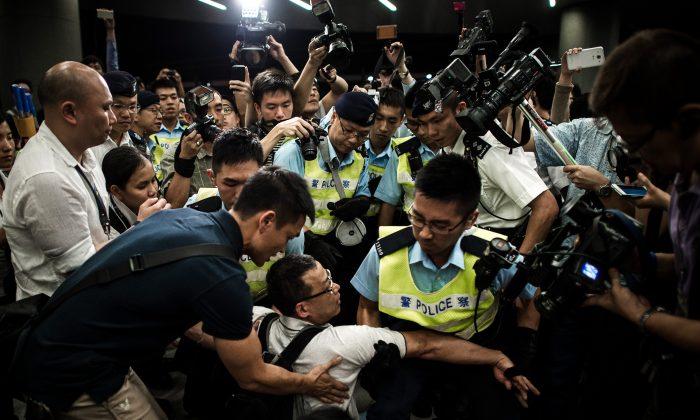
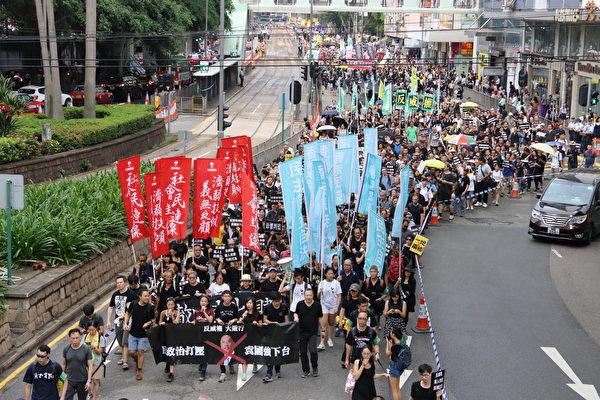
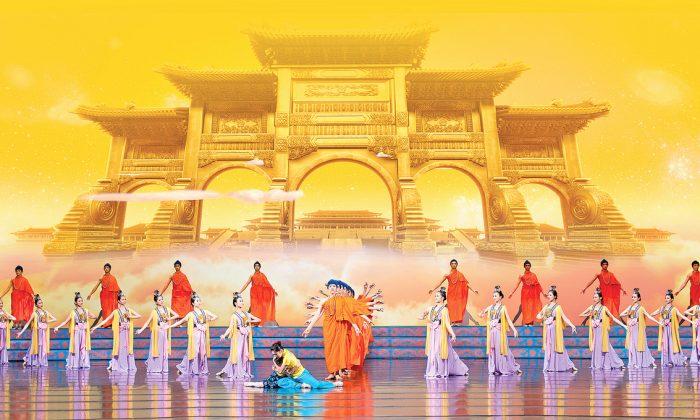
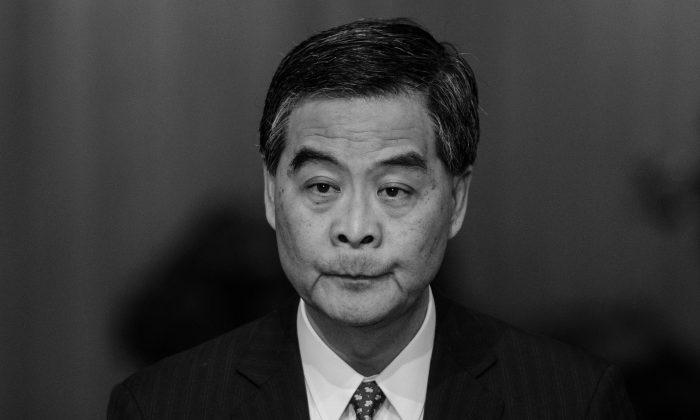
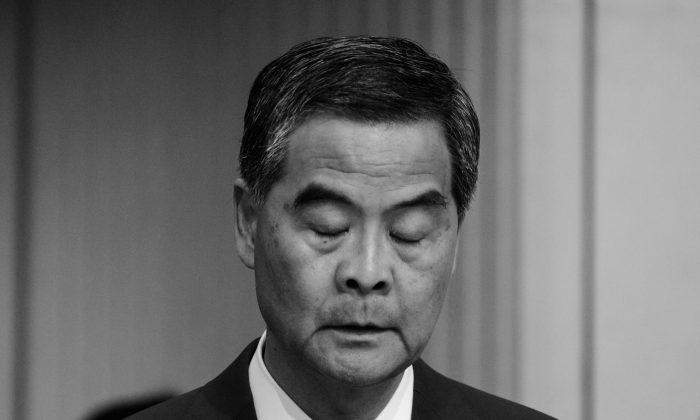
Friends Read Free